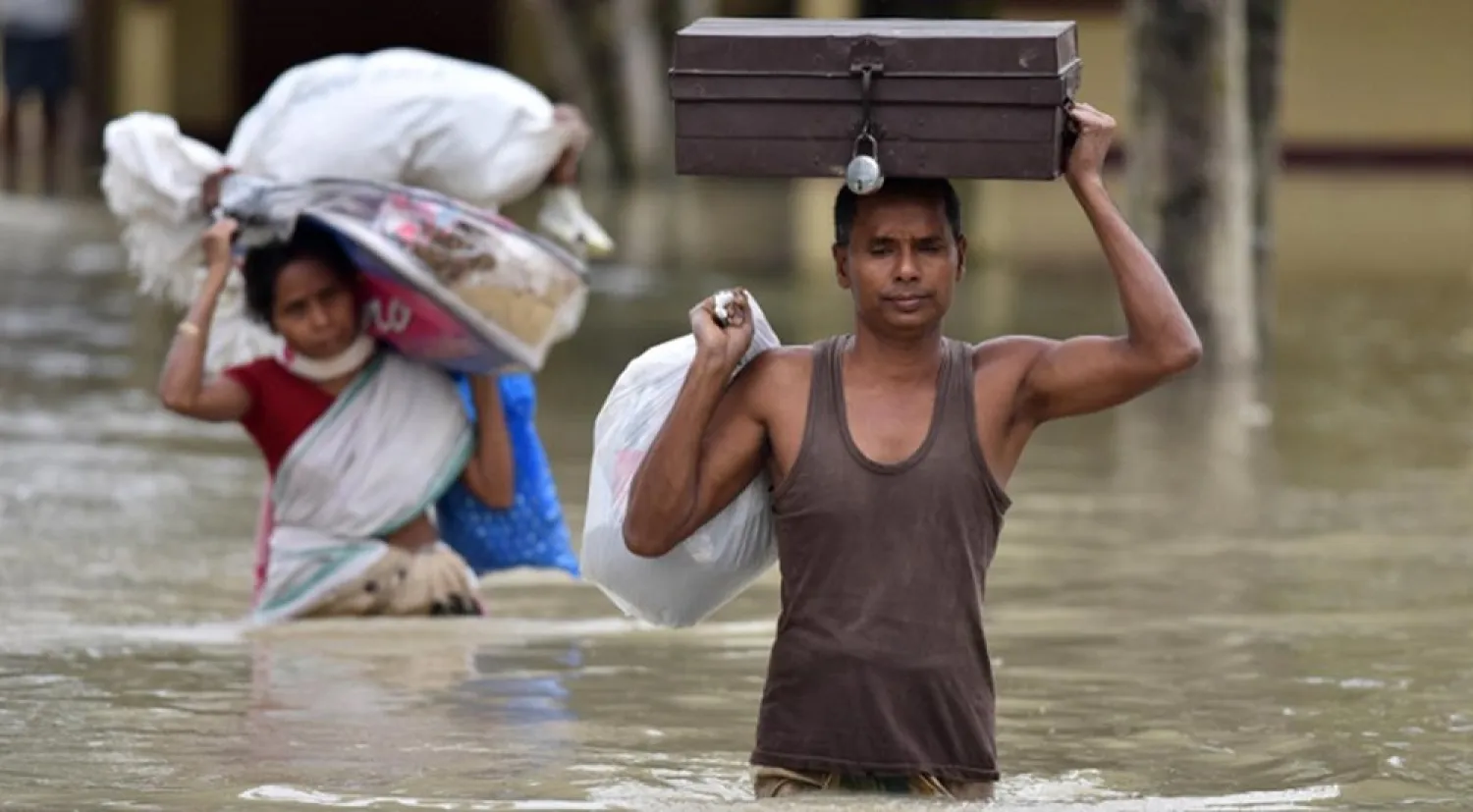Floods in South Asia have left more than 800 people dead and over a million displaced in India, Nepal and Bangladesh.
Seasonal monsoon rains, a lifeline for farmers across South Asia, typically cause loss of life and property every year between July and September, but officials say this year's flooding is the worst in several years.
Aid workers warned of severe food shortages and water-borne diseases as rains continue to lash the affected areas. Some 10,000 emergency workers and soldiers were supporting Indian officials in relief and rescue operations.
At least 115 people have died and more than 5.7 million are affected in Bangladesh as floods submerged more than a third of the low-lying and densely populated country.
"The water level has gradually dropped. The flood situation will improve if it does not rain upstream any further," Sazzad Hossain, executive engineer of Bangladesh's Flood Forecasting and Warning Center, told Reuters.
Reaz Ahmed, the director general of Bangladesh's Disaster Management Department, said there are rising concerns about food shortages and the spread of disease.
"With the flood waters receding, there is a possibility of an epidemic. We fear the outbreak of water-borne diseases if clean water is not ensured soon," Ahmed told Reuters.
With some rivers running above danger levels, 225 bridges have been damaged in Bangladesh, disrupting food and medicine supplies to people displaced from their homes, said aid workers.
In the Indian state of Assam bordering Bangladesh, at least 180 people have been killed in the past few weeks.
"With the floods washing away everything... there is not even a trace of our small thatched hut," said Lakshmi Das, a mother of three, living in Kaliabor, Assam.
"We do not even have a second pair of clothes to wear. The government is not providing any aid."
Torrential rains have also hit the northeastern states of Arunachal Pradesh, Nagaland and Manipur, killing at least 30 people.
Flood waters of the Brahmaputra river had earlier in July submerged the Kaziranga wildlife sanctuary in Assam. The floods have since killed more than 350 animals, including 24 endangered one-horned rhinoceros, five elephants and a tiger.
Meanwhile, in the eastern state of Bihar, at least 253 people lost their lives where incessant rains washed away crops, destroyed roads and disrupted power supplies.
A senior official in Bihar's disaster management department, Anirudh Kumar, said nearly half a million people have been provided with shelter.
In Nepal, 141 people were confirmed dead, while thousands of survivors returned to their semi-destroyed homes.
"Their homes are in a state of total destruction," said Francis Markus from International Federation of Red Cross and Red Crescent Societies.
The United Nations has called this the worst floods to hit the country for 15 years.
Nearly 400,000 people were staying in state-run shelters, with an estimated 10 million affected by the deluge, the worst since 2008 when nearly 300 people were killed.
Every year hundreds die in landslides and floods during the monsoon season that hits India's southern tip in early June and sweeps across South Asia for four months.
A massive landslide in India's Himachal Pradesh state swept two passenger buses off a hillside, killing 46 people on August 13.
Eight others, including two soldiers, were killed in Uttarakhand state in landslides on Monday.
Nearly 350 people died in the first wave of floods that began in mid-July in India's western states of Gujarat and Rajasthan and several remote northeastern states.









